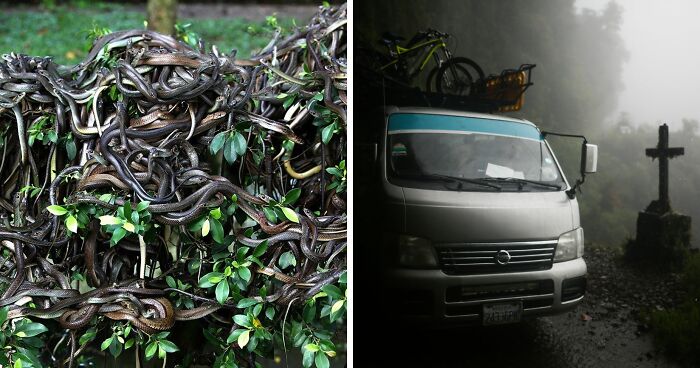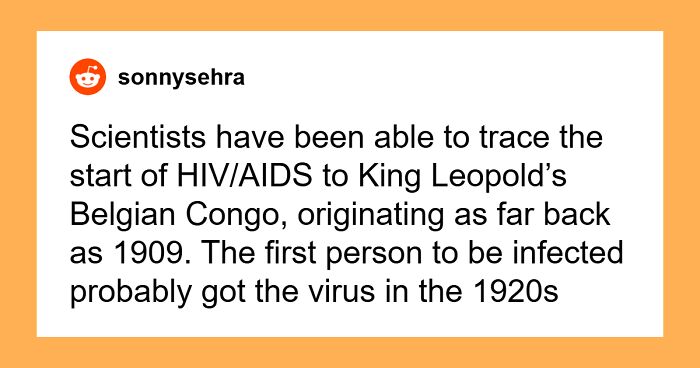
Someone Asked “What Are Some ‘That Was Way Too Close’ Moments In History?“, And 24 Peeps Delivered
Interview With ExpertHuman history has a lot of fascinating highs and lows. It has had many great achievements that no other species on our planet has been able to accomplish. At the same time, there were way too many times when humanity came very close to self-destruction, usually due to someone's unreasonable actions. In fact, when someone asked online to provide examples of these "way too close" moments in history, the netizens did not hold back and provided an extensive list of them. Today, let's take a look at some of them.
More info: Reddit
This post may include affiliate links.
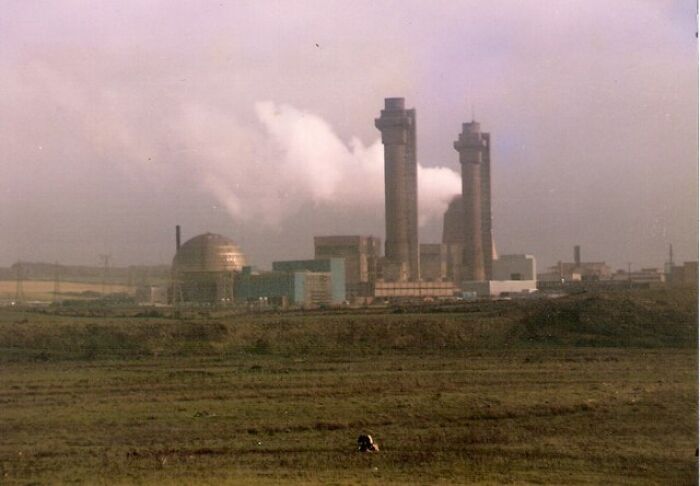 In 1957 a fire in the Sellafield nuclear power station (UK) burned through the HEPA filters and should have contaminated the whole North of England, this is known as the UKs biggest nuclear disaster.
In 1957 a fire in the Sellafield nuclear power station (UK) burned through the HEPA filters and should have contaminated the whole North of England, this is known as the UKs biggest nuclear disaster.
The UK was saved by a man named John Cockcroft who during design insisted that a second set of filters be installed on the top of the exhaust towers. All others ridiculed this idea as expensive and redundant and the towers became known as "Cockcroft's Follies" (Folly = lack of good sense; foolishness). These towers saved the UK so we're very lucky for his folly.
this is the story
Edit: I should add that while John Cockcroft's Follies saved large portions of the UK. There were also a large number of people who disregarded orders and entered the reactor to try and manually hammer out the stuck uranium rods using scafold poles to stop the reaction/fire. These people took large doses of radiation to stop the disaster, I'm glad that's a decision I'll never have to make.
It's rather disconcerting how often extensive safety precautions are portrayed as a waste of time and effort with radioactive power sources. The same thing happened with the Fukushima plant's design redundancies. I can't help but think that we as a species aren't responsible enough to work with radioactive power sources if we're this nonchalant about naysaying protections against disaster!
The interesting thing to me is that ultimately someone agreed with Cockcroft. If they didn't the extra filters wouldn't have been installed at all. This story actually reads to me like a story about successful risk management.
Load More Replies...That old saying... if you think safety is expensive, try pricing an accident.
The name was changed to Sellafield (to build public confidence) but the nearby beach is still showing radioactivity
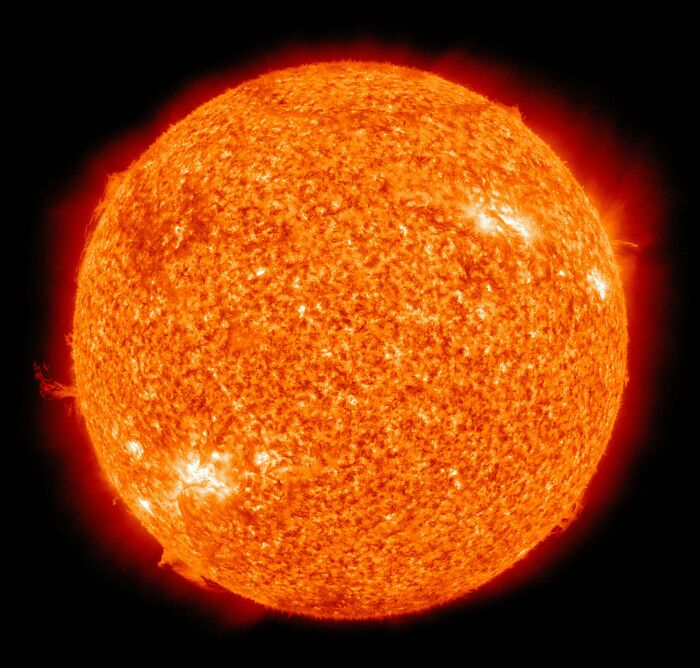 2012 Coronal Mass Ejection
The most powerful solar storm in 150 years occurred on July 23rd 2012. Scientists claim that the storm could have knocked out the entire modern world if it had arrived nine days earlier. Luckily for us, it didn’t hit as the earth was in a different position along its orbit
2012 Coronal Mass Ejection
The most powerful solar storm in 150 years occurred on July 23rd 2012. Scientists claim that the storm could have knocked out the entire modern world if it had arrived nine days earlier. Luckily for us, it didn’t hit as the earth was in a different position along its orbit
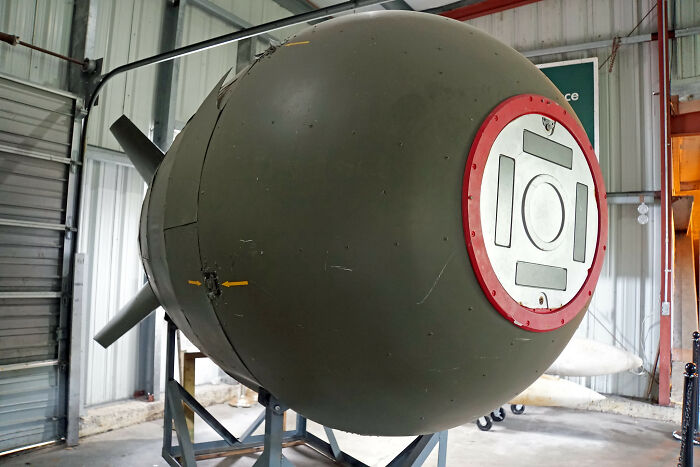 When they thought that it might theoretically be possible that testing the atomic bomb would start a reaction that would ignite and burn the entire atmosphere of our planet and tested it anyway. I would say that was a big "PHEW" moment when it was over.
When they thought that it might theoretically be possible that testing the atomic bomb would start a reaction that would ignite and burn the entire atmosphere of our planet and tested it anyway. I would say that was a big "PHEW" moment when it was over.
The Dean of Columbia University School of the Arts Carol Becker, to whom Bored Panda reached out, pointed out that today we’re living through the climate crisis. And just as many others from the list, this one is also caused by humans, and we acknowledge the fact that we’re also the ones who need to find a way out of it, even if the prospects don’t seem so bright. “Many in the world are already suffering the consequences of climate catastrophe and are not empowered to transform the national behaviors of governments that are contributing to it. We are all in a crisis; one we may not survive.”
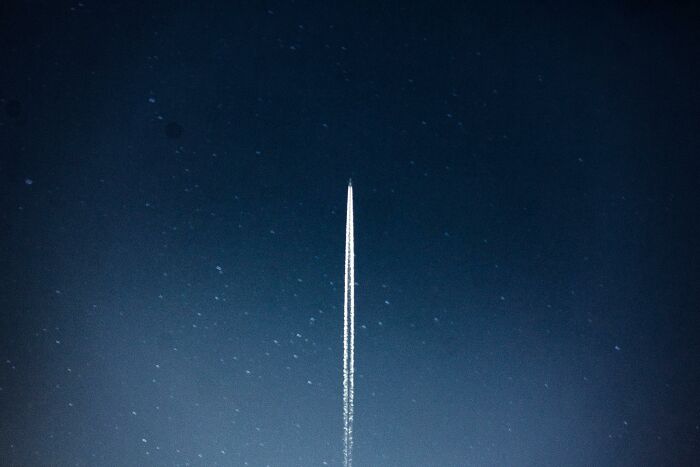 Apollo 13 in 1970 when an oxygen tank exploded. Astronauts were stranded in space with little hope. It was nearly a disaster, but their teamwork and clever thinking saved them.
Apollo 13 in 1970 when an oxygen tank exploded. Astronauts were stranded in space with little hope. It was nearly a disaster, but their teamwork and clever thinking saved them.
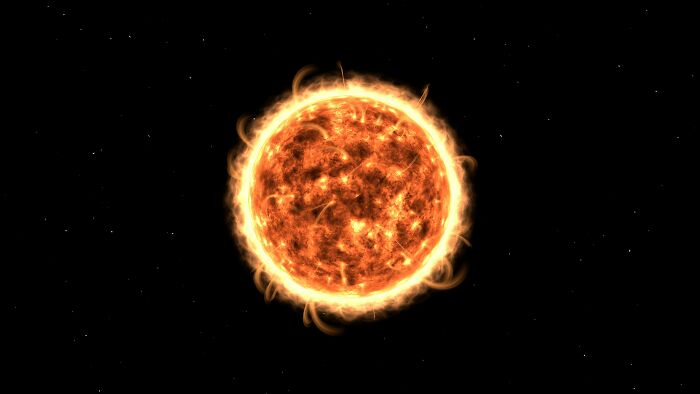 The "Carrington Event" was a *massive* solar storm that happened in 1859 and directly struck the earth. Its strength was such that infused the very air with so much electricity that telegraph wires around the planet erupted in flames or shocked their operators from feet away.
The "Carrington Event" was a *massive* solar storm that happened in 1859 and directly struck the earth. Its strength was such that infused the very air with so much electricity that telegraph wires around the planet erupted in flames or shocked their operators from feet away.
If something like it had happened (or does happen) today, it will radically affect civilization by physically destroying or incapacitating most of our modern technology.
Oh well, I guess I would just go back to reading books instead of aimlessly surfing the web
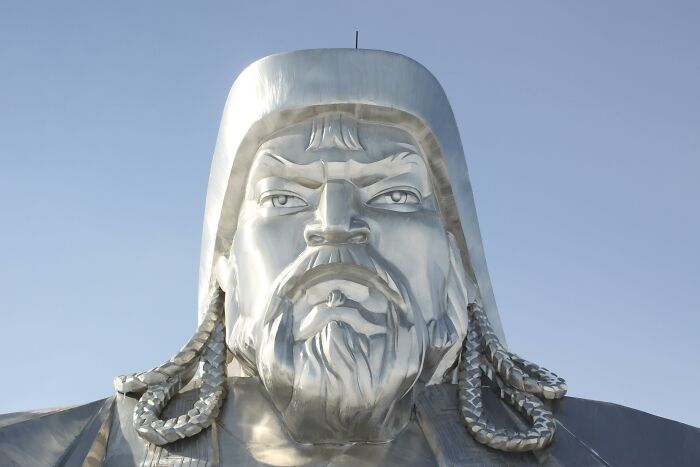 Ögedei Khan, Genghis Khan's third son and heir, died in December of 1241. Prior to his death, a Mongol army under his nephew Batu and a general named Subatai had been given authority to conquer Europe all the way to the Atlantic. Upon news of his death, they turned around and went back to help choose the next Great Khan. No further Mongol invasion of Europe ever got beyond the planning stages. Now we can talk about the practical limitations of a steppe army campaigning all the way to the Atlantic successfully —ignoring Atilla the Hun managed to get as far as Northern France and Northern Italy seven centuries earlier without proper siege equipment— but the Mongols had already successfully penetrated as far as Poland and Hungary, beating organized European resistance along the way without a lot of difficulty. It doesn't seem incredible to me that a military that could conquer China would have caused incredible devastation in central and western Europe.
What does European history look like if large parts of it had been either devastated by foreign invaders or even ruled by a Mongol dynasty in the 13th Century? We don't know because one man who most people have never heard of drank himself to death, and an otherwise victorious, well-led, well-equipped, and motivated army had to go home to decide who to take orders from next.
Ögedei Khan, Genghis Khan's third son and heir, died in December of 1241. Prior to his death, a Mongol army under his nephew Batu and a general named Subatai had been given authority to conquer Europe all the way to the Atlantic. Upon news of his death, they turned around and went back to help choose the next Great Khan. No further Mongol invasion of Europe ever got beyond the planning stages. Now we can talk about the practical limitations of a steppe army campaigning all the way to the Atlantic successfully —ignoring Atilla the Hun managed to get as far as Northern France and Northern Italy seven centuries earlier without proper siege equipment— but the Mongols had already successfully penetrated as far as Poland and Hungary, beating organized European resistance along the way without a lot of difficulty. It doesn't seem incredible to me that a military that could conquer China would have caused incredible devastation in central and western Europe.
What does European history look like if large parts of it had been either devastated by foreign invaders or even ruled by a Mongol dynasty in the 13th Century? We don't know because one man who most people have never heard of drank himself to death, and an otherwise victorious, well-led, well-equipped, and motivated army had to go home to decide who to take orders from next.
The whole European history is about invasions, dating back to Stone Age. So one more might have changed things, but maybe not so much.
Carol Becker also talked about how people tend to react to the possible destructive crises differently, so there’s no way to say how the majority of people would react without gross generalization. “There are so many cultures, nationalities, religious, spiritual, economic and social considerations that make individuals and groups unique.”
Yet, we can guess that any of these kinds of situations are scary for people to live through. For this reason, some specialists provide certain tips on how to deal with crises emotionally. Here are some of them:
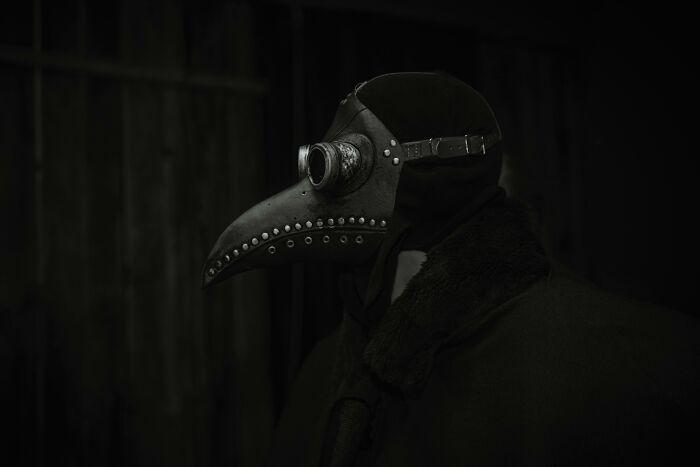 The Black Death - The plague caused an epidemic in China in the 1330s, and again in the 1350s, causing tens of millions of deaths. The 1330s outbreak also spread west across Central Asia via traders using the Silk Road.
Occurring in Europe from 1346 to 1353. One of the most fatal pandemics in human history, as many as 50 million people perished, perhaps 50% of Europe’s 14th century population. Bubonic plague is caused by the bacterium Yersinia pestis and spread by fleas.
The plague did not stop entirely until the early eighteenth century (1700-1799).
The Black Death - The plague caused an epidemic in China in the 1330s, and again in the 1350s, causing tens of millions of deaths. The 1330s outbreak also spread west across Central Asia via traders using the Silk Road.
Occurring in Europe from 1346 to 1353. One of the most fatal pandemics in human history, as many as 50 million people perished, perhaps 50% of Europe’s 14th century population. Bubonic plague is caused by the bacterium Yersinia pestis and spread by fleas.
The plague did not stop entirely until the early eighteenth century (1700-1799).
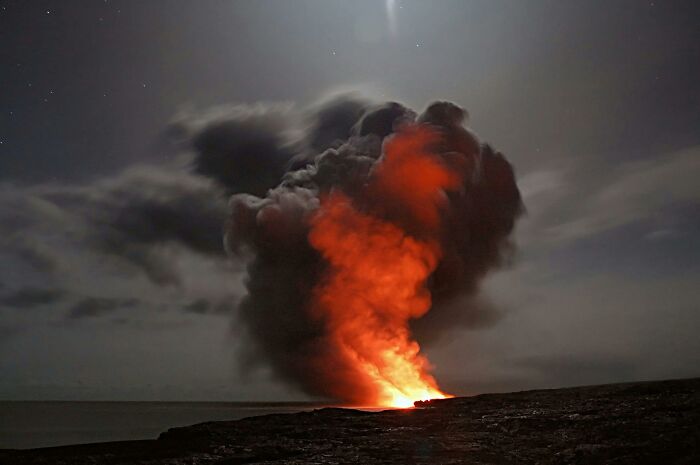 The oil well fires in Kuwait almost gave us a taste of what a nuclear winter would be like. Blowing the fires out with a MIG engine and dousing them with a gas turbine turned out to be the heavy hitters in fixing the issue.
The oil well fires in Kuwait almost gave us a taste of what a nuclear winter would be like. Blowing the fires out with a MIG engine and dousing them with a gas turbine turned out to be the heavy hitters in fixing the issue.
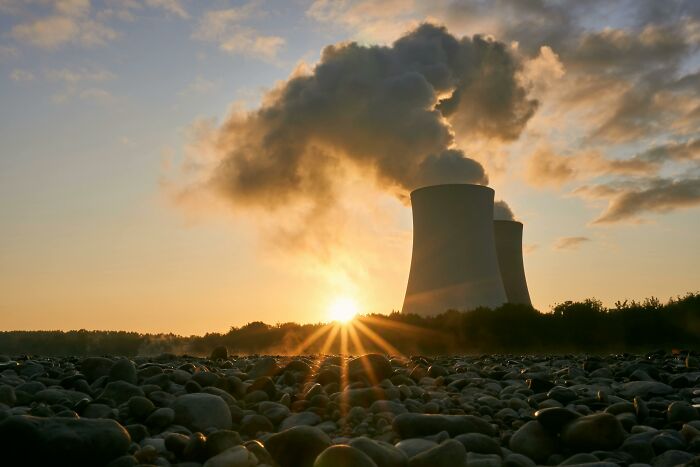 Three Mile Island was way way worse than what the government revealed.
Then there was a plan to lift the melted core out with the lift which hadn't been used or tested since the accident. Had that failed, and dropped the core - which it probably would have - could have made most of the East Coast uninhabitable.
There's a very scary documentary on Netflix that reviews everything.
Three Mile Island was way way worse than what the government revealed.
Then there was a plan to lift the melted core out with the lift which hadn't been used or tested since the accident. Had that failed, and dropped the core - which it probably would have - could have made most of the East Coast uninhabitable.
There's a very scary documentary on Netflix that reviews everything.
If the tips provided by professionals aren't enough to calm the anxiety caused due to a global crisis, some anxiety exercises can be tried.
For example, the so-called "54321 method." With this grounding method, you have to:
- Look for 5 things you can see;
- Focus on 4 things you can touch;
- Listen for 3 things you can hear;
- Find 2 things you can smell;
- Name 1 thing you can taste.
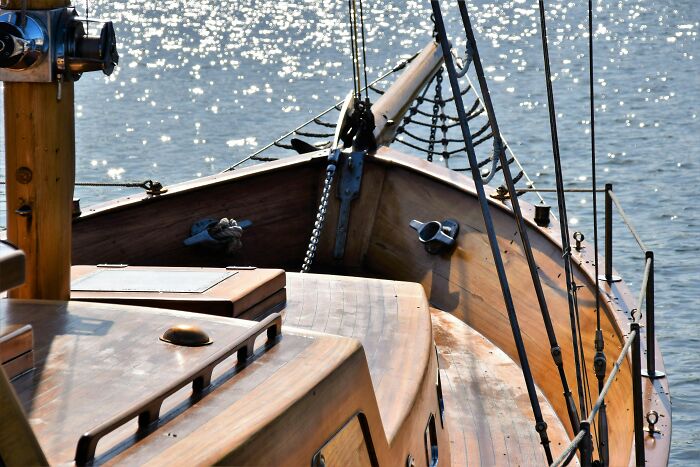 In 1797, HMS Minerve, a lone British frigate in the Mediterranean, blundered into an entire hostile Spanish fleet including 25 ships of the line in foggy weather. Fortunately, none of the Spaniards noticed her and she was able to escape, link up with the main British fleet and report the Spanish movements leading to a battle shortly afterwards.
Minerve’s Captain was one Horatio Nelson.
In 1797, HMS Minerve, a lone British frigate in the Mediterranean, blundered into an entire hostile Spanish fleet including 25 ships of the line in foggy weather. Fortunately, none of the Spaniards noticed her and she was able to escape, link up with the main British fleet and report the Spanish movements leading to a battle shortly afterwards.
Minerve’s Captain was one Horatio Nelson.
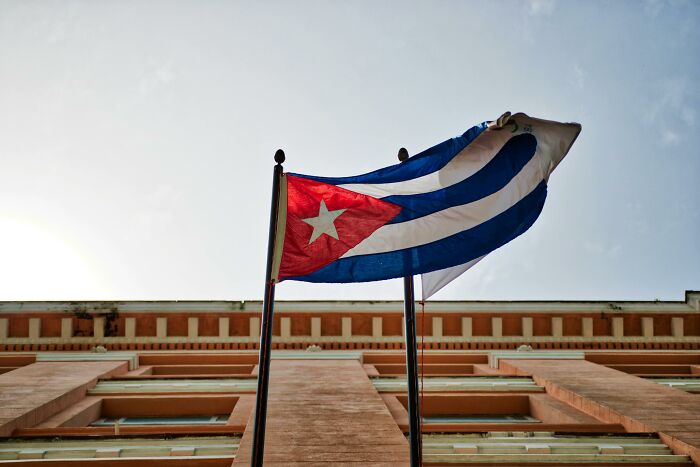 Cuban missile crisis
Cuban missile crisis
The American army had shortly before that moved nuclear missiles up in Turkey to within easy reach of Moscow. The Russians saw this as preparations for NATO to invade Russia, which it was. Cuba is way further from the USA than those American nuclear missiles in Turkey were from the Soviet border. The Russians were not happy.
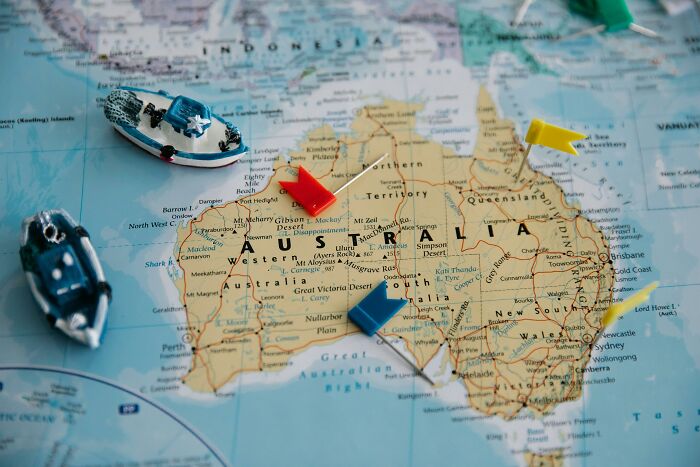 Shortly after Cook discovered Australia, he was mapping its Eastern coast when his ship (HMS Endeavour) ran aground on part of the reef now called ‘Endeavour Reef’.
4 miles from land, the ship was stricken and had a gaping hole in the keel. The crippled ship would go down if freed from the reef because of the hole.
Cook was stranded.
A member of his crew (who’s name I don’t know, and may be forgotten to history - someone can correct me) suggested they ‘fother’ the Endeavour’s hull. An unorthodox method of soaking a sail in oil and wrapping it round the ship like a crude bandage.
This allowed Endeavour to limp to the mainland where full scale repairs could be made.
If Cook had lost the endeavour, and probably many of his crew during this - his return to England would have been extremely unlikely of not impossible.
If he hadn’t reported his discovery of Australia, the English would have never claimed it and in all likelihood focused their colonial efforts elsewhere. Namely America, resulting in a more substantial and perhaps longer lasting American colony.
Also, the French would have more than likely discovered and colonised Australia (their expeditions in the Australia region at that time suggest this).
Geopolitics would look very different today if that unnamed sailor didn’t know about ‘Fothering’.
The Cuban missile crisis probably wouldn’t have been a thing.
Shortly after Cook discovered Australia, he was mapping its Eastern coast when his ship (HMS Endeavour) ran aground on part of the reef now called ‘Endeavour Reef’.
4 miles from land, the ship was stricken and had a gaping hole in the keel. The crippled ship would go down if freed from the reef because of the hole.
Cook was stranded.
A member of his crew (who’s name I don’t know, and may be forgotten to history - someone can correct me) suggested they ‘fother’ the Endeavour’s hull. An unorthodox method of soaking a sail in oil and wrapping it round the ship like a crude bandage.
This allowed Endeavour to limp to the mainland where full scale repairs could be made.
If Cook had lost the endeavour, and probably many of his crew during this - his return to England would have been extremely unlikely of not impossible.
If he hadn’t reported his discovery of Australia, the English would have never claimed it and in all likelihood focused their colonial efforts elsewhere. Namely America, resulting in a more substantial and perhaps longer lasting American colony.
Also, the French would have more than likely discovered and colonised Australia (their expeditions in the Australia region at that time suggest this).
Geopolitics would look very different today if that unnamed sailor didn’t know about ‘Fothering’.
The Cuban missile crisis probably wouldn’t have been a thing.
Pity, we would have had better food much sooner, and not be plagued by rabbits and foxes either. And the English would have had to find someone else to teach and lose at cricket to
Or the "five-count breath" exercise, which technically works as meditation: you inhale your breath for a count of 5, then hold your breath for a count of 5, and exhale for a count of 5. There are other similar variations of the technique. And if these don't work, there are plenty of other anxiety-calming exercises to try out. As always, it's up to the person to decide which fits them the best.
How do you think you would cope with a global crisis? Maybe there are some methods you have already tried out, knowing what's going on in the world right now? Share them with us in the comments.
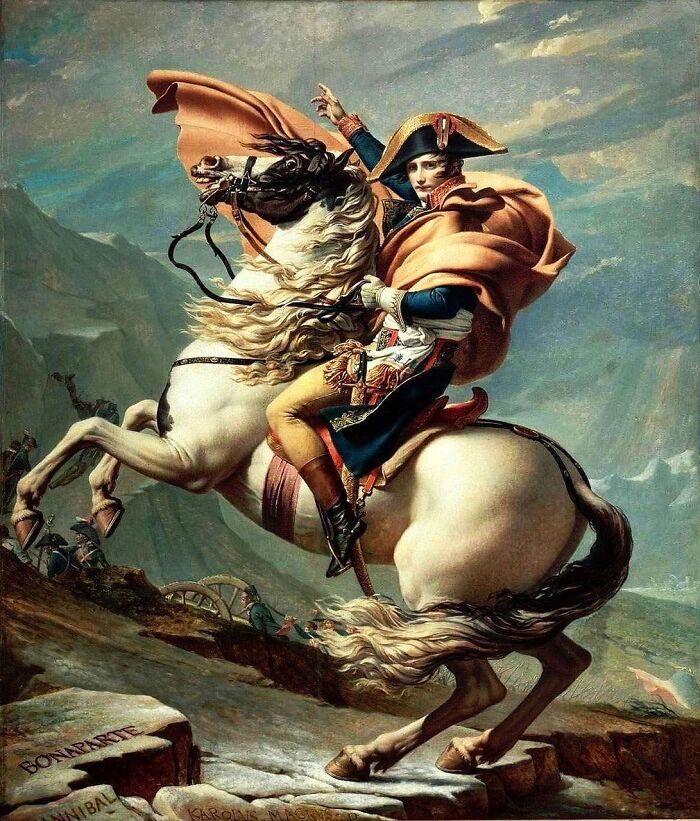 Europe declaring war on Napoleon.
Not France...Napoleon.
Europe declaring war on Napoleon.
Not France...Napoleon.
This isn't a close call. He had a good run but they beat his a*s twice. The Russians just used weather and famine to do it.
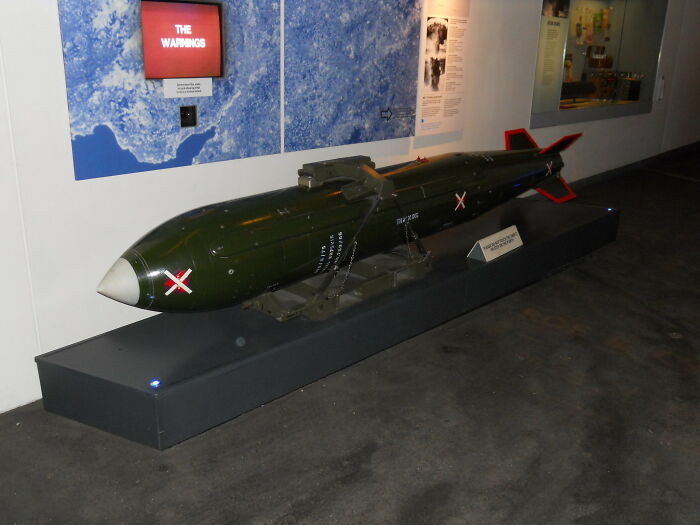 In 1983, Stanislav Petrov received a nuclear early warning missile warning that missiles from the US were heading towards the USSR. He decided it was a false alarm and didn't start the process for retaliation. It was later revealed that, most likely, there would not have been a retaliatory attack by the Soviets as they would have wanted further confirmation, but some people believe he saved world from all out nuclear war. Edit: Because of that, I change my answer. In 8th grade, I accidentally almost brushed Sally McNeilson's epic boobs. I was just turning around and waving at the field to tell someone that there was his friend playing basketball, and I almost made contact when I turned around. Now, you may think, is that really a "moment in history?" Well, if you saw her rack at a 13 year old, you'd immediately agree.
In 1983, Stanislav Petrov received a nuclear early warning missile warning that missiles from the US were heading towards the USSR. He decided it was a false alarm and didn't start the process for retaliation. It was later revealed that, most likely, there would not have been a retaliatory attack by the Soviets as they would have wanted further confirmation, but some people believe he saved world from all out nuclear war. Edit: Because of that, I change my answer. In 8th grade, I accidentally almost brushed Sally McNeilson's epic boobs. I was just turning around and waving at the field to tell someone that there was his friend playing basketball, and I almost made contact when I turned around. Now, you may think, is that really a "moment in history?" Well, if you saw her rack at a 13 year old, you'd immediately agree.
vtssge1968 said:
Drunk Nixon wanting to launch nukes is definitely up there, the Russian sub that denied orders to use a nuke, and the false alarm in Russia that the us had launched nukes on them.
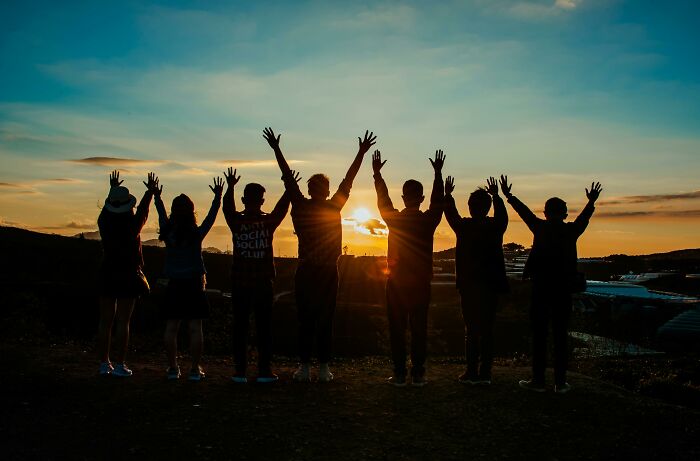 Our human ancestors nearly went extinct 930,000 years ago. There were 1280 breeding humans at one point and we all come from them.
Our human ancestors nearly went extinct 930,000 years ago. There were 1280 breeding humans at one point and we all come from them.
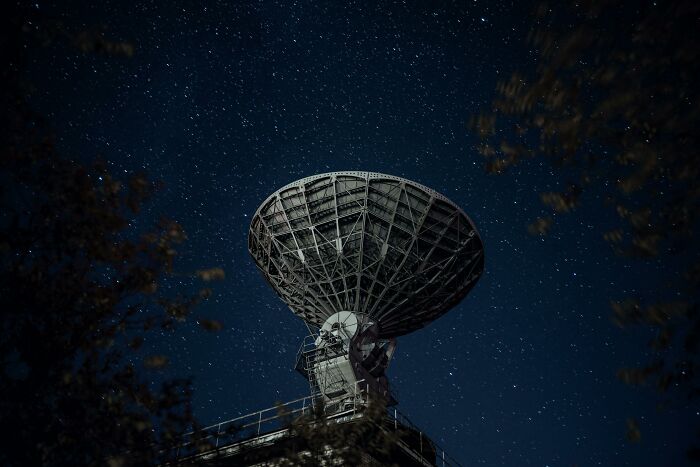 Have you heard about the 1967 solar storm? It's not as famous as some others, but it had the potential to kick off a nuclear war. The storm messed with the US air force's radar systems, making them think they were under attack.
Have you heard about the 1967 solar storm? It's not as famous as some others, but it had the potential to kick off a nuclear war. The storm messed with the US air force's radar systems, making them think they were under attack.
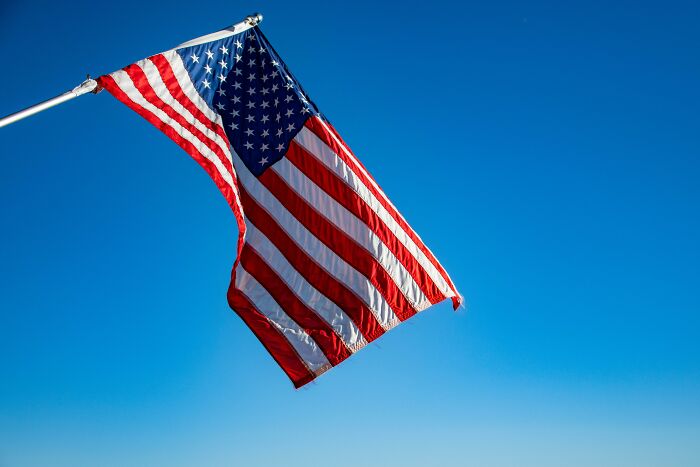 The American Revolution. Some years ago I read a book called “Almost a Miracle” which was a narrative about the American Revolution and the whole thing was hanging by a string the entire time. Troops coming and going, the struggles to pay them and afford supplies and munitions, losses in the field, bickering by a divided congress and many other factors kept the struggle for independence on the razor’s edge of collapse from beginning to end. I recommend the book wholeheartedly.
The American Revolution. Some years ago I read a book called “Almost a Miracle” which was a narrative about the American Revolution and the whole thing was hanging by a string the entire time. Troops coming and going, the struggles to pay them and afford supplies and munitions, losses in the field, bickering by a divided congress and many other factors kept the struggle for independence on the razor’s edge of collapse from beginning to end. I recommend the book wholeheartedly.
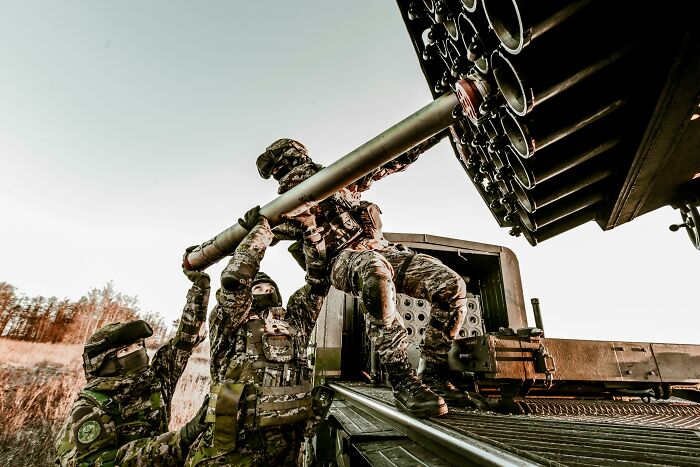 1973 the Yom Kippur War.
Israel had their backs against the wall and they were ready to go nuclear. The US had to resupply them or else they would have gone nuclear. In retaliation for the US resupplying Israel, the Soviet Union deployed tactical nuclear weapons to Egypt.
In retaliation the US deployed tactical nuclear weapons in Vietnam. With the intention of marching on Hanoi with full tactical nuclear support if Nuclear weapons were fired in the middle east.
1973 the Yom Kippur War.
Israel had their backs against the wall and they were ready to go nuclear. The US had to resupply them or else they would have gone nuclear. In retaliation for the US resupplying Israel, the Soviet Union deployed tactical nuclear weapons to Egypt.
In retaliation the US deployed tactical nuclear weapons in Vietnam. With the intention of marching on Hanoi with full tactical nuclear support if Nuclear weapons were fired in the middle east.
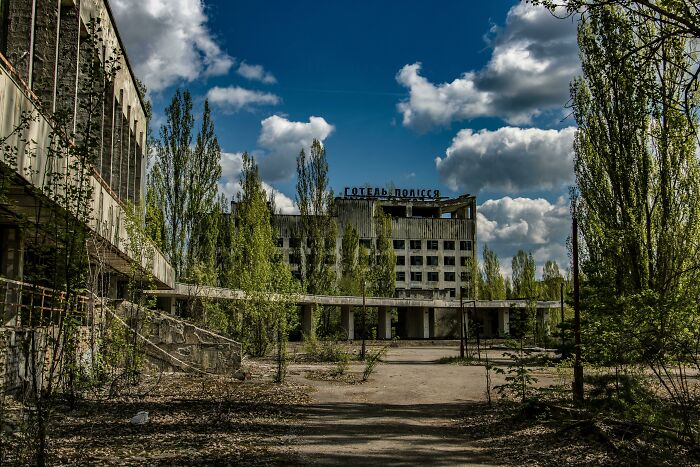 Chernobyl disaster in 1986, narrowly avoiding a catastrophic meltdown with global consequences.
Chernobyl disaster in 1986, narrowly avoiding a catastrophic meltdown with global consequences.
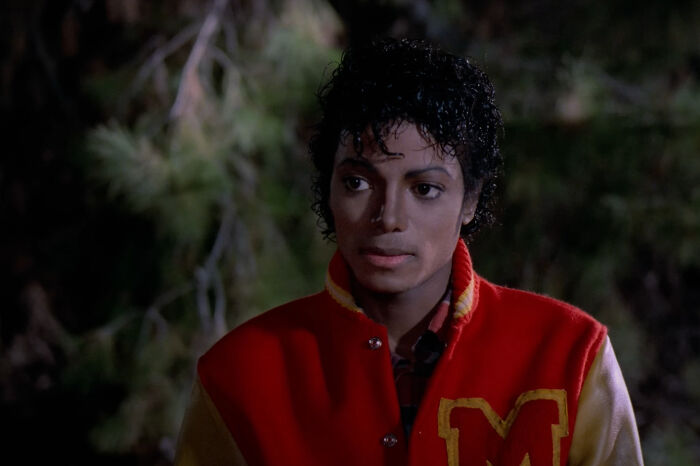 Michael Jackson was supposed to be at the World Trade Center on the morning of 9/11, but he overslept.
Michael Jackson was supposed to be at the World Trade Center on the morning of 9/11, but he overslept.
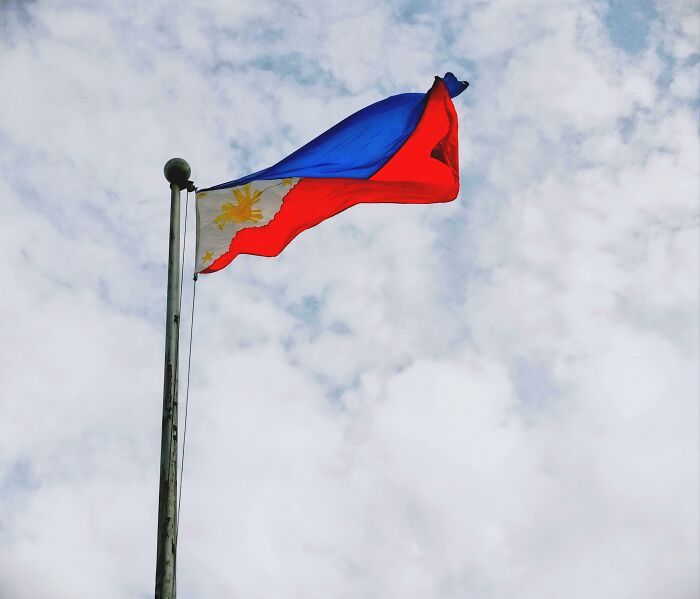 The British almost colonized the Philippines, as part of the seven year's war from 1756-1763, a British expeditionary force led by Admiral Samuel Cornish and General William Draper attacked Manila in 1762 hoping to gain a strategic foothold in the region and establish their dominance over the Pacific trade. The Spanish forces offered little resistance, and after a fierce battle, the British took control of Manila for 2 years. During this period, the British attempted to establish a colonial government and negotiate a permanent settlement with Spain . However, the Treaty of Paris in 1763 ended the Seven Year's War, and as a part of peace settlement, the British was forced to return Manila to Spain.
The British almost colonized the Philippines, as part of the seven year's war from 1756-1763, a British expeditionary force led by Admiral Samuel Cornish and General William Draper attacked Manila in 1762 hoping to gain a strategic foothold in the region and establish their dominance over the Pacific trade. The Spanish forces offered little resistance, and after a fierce battle, the British took control of Manila for 2 years. During this period, the British attempted to establish a colonial government and negotiate a permanent settlement with Spain . However, the Treaty of Paris in 1763 ended the Seven Year's War, and as a part of peace settlement, the British was forced to return Manila to Spain.
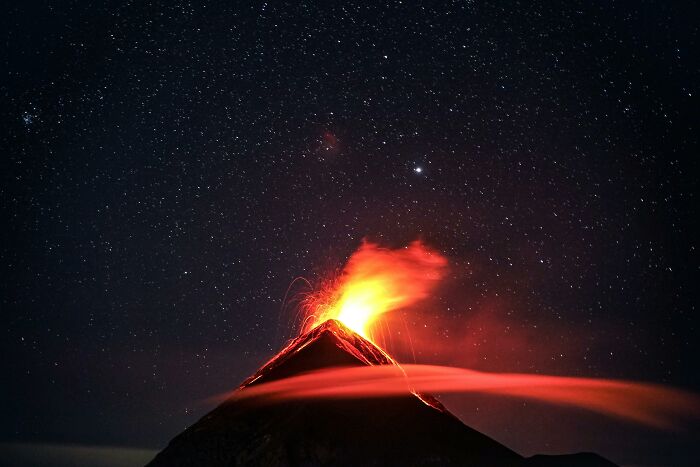 The Toba Catastrophe reduced the human population to somewhere between 3,000-10,000 in number.
The Toba Catastrophe reduced the human population to somewhere between 3,000-10,000 in number.
Bear in mind this is only a theory. There's no actual proof that it actually happened, and certain physical evidence debunks it. (Yes, the Toba volcano did erupt, but the idea that it caused widespread environmental damage or reduced the human population is purely a theory - that's why it's called the Toba Catastrophe Hypothesis.)
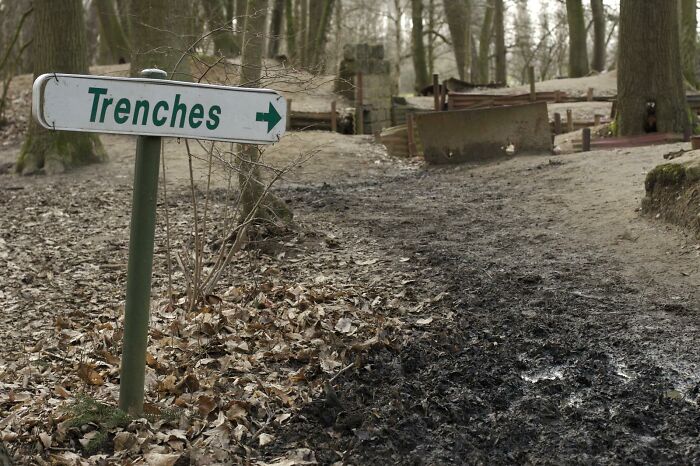 Battle of Verdun in the great war
Battle of Verdun in the great war
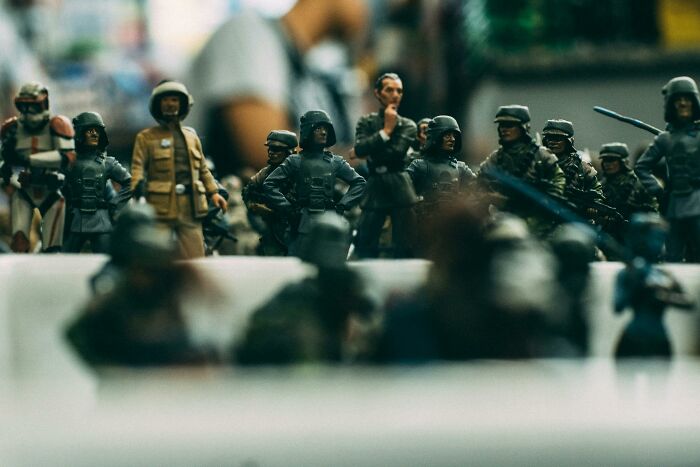 The times in the 20th century when Russia, America and England were **directly ordered** to start WWIII, but someone chose to willingly disobey the order.
James Blunt was ordered to do it when he was serving in Kosovo, and US Secretary Colin Powell even got on the radio to tell him that he would face a court martial if he refused to comply. He said that the whole experience is what made him want to retire from the military in order to pursue a career in music instead.
There were also quite a few instances where glitches in the defense AI had detected a missile had already been launched, and it was the human operators who refused to launch a "counter attack". This is really what stuff like The Terminator, and the song 99 Red Balloons were inspired by; it was meant to show us what would happen if we didn't have human cooperation and communication too.
The times in the 20th century when Russia, America and England were **directly ordered** to start WWIII, but someone chose to willingly disobey the order.
James Blunt was ordered to do it when he was serving in Kosovo, and US Secretary Colin Powell even got on the radio to tell him that he would face a court martial if he refused to comply. He said that the whole experience is what made him want to retire from the military in order to pursue a career in music instead.
There were also quite a few instances where glitches in the defense AI had detected a missile had already been launched, and it was the human operators who refused to launch a "counter attack". This is really what stuff like The Terminator, and the song 99 Red Balloons were inspired by; it was meant to show us what would happen if we didn't have human cooperation and communication too.
This is riddled with factual inaccuracies. I started typing them out and ran out of characters. There were many close calls but this post is fallacies, misattributed actions, and conspiracy theories.
I enjoy posts like this, but I will really appreciate some fact-checking beforehand. Too many "facts" are in fact bull doo-doo.
At one point, the Shawnee chief Tecumseh had gathered up an army from many tribes to try to stop the European colonists from taking over their lands. Things came to a head when he had 10,000 men ready and available to come to fight with one day's notice. The were definitely a match for the colonists and had they attacked, they could have won. Then there was Tecumseh's brother, Tenskwatawa, aka The Prophet. He had great influence over the people as well. Well, the night before the attack, he told the fighters that their shirts made them invulnerable to bullets. He got them to attack early. They lost resoundingly. The entire history of the region of the US likely would have been different if not for The Prophet's decision that night. (I am summarizing this from reading about it 25 years ago. I might have it a little bit wrong, but this is the jist of it.)
Cuban missile crisis... my uncle was a Colonel in SAC (strategic air command), most of our family lived in the SF Bay Area. At the time there were half a dozen military bases (at least) in the region. Although it was against regs, Uncle Jackson called Grandma to warn her to make sure family were all able to be near each other during that time. Because of all the Navy, Army, and Air Force bases we were considered a "prime target" if attack came.
Anne Frank didn't have nuclear weapons and she died horribly, that's not exactly a near miss.
Load More Replies...I enjoy posts like this, but I will really appreciate some fact-checking beforehand. Too many "facts" are in fact bull doo-doo.
At one point, the Shawnee chief Tecumseh had gathered up an army from many tribes to try to stop the European colonists from taking over their lands. Things came to a head when he had 10,000 men ready and available to come to fight with one day's notice. The were definitely a match for the colonists and had they attacked, they could have won. Then there was Tecumseh's brother, Tenskwatawa, aka The Prophet. He had great influence over the people as well. Well, the night before the attack, he told the fighters that their shirts made them invulnerable to bullets. He got them to attack early. They lost resoundingly. The entire history of the region of the US likely would have been different if not for The Prophet's decision that night. (I am summarizing this from reading about it 25 years ago. I might have it a little bit wrong, but this is the jist of it.)
Cuban missile crisis... my uncle was a Colonel in SAC (strategic air command), most of our family lived in the SF Bay Area. At the time there were half a dozen military bases (at least) in the region. Although it was against regs, Uncle Jackson called Grandma to warn her to make sure family were all able to be near each other during that time. Because of all the Navy, Army, and Air Force bases we were considered a "prime target" if attack came.
Anne Frank didn't have nuclear weapons and she died horribly, that's not exactly a near miss.
Load More Replies...
 Dark Mode
Dark Mode 

 No fees, cancel anytime
No fees, cancel anytime 
























